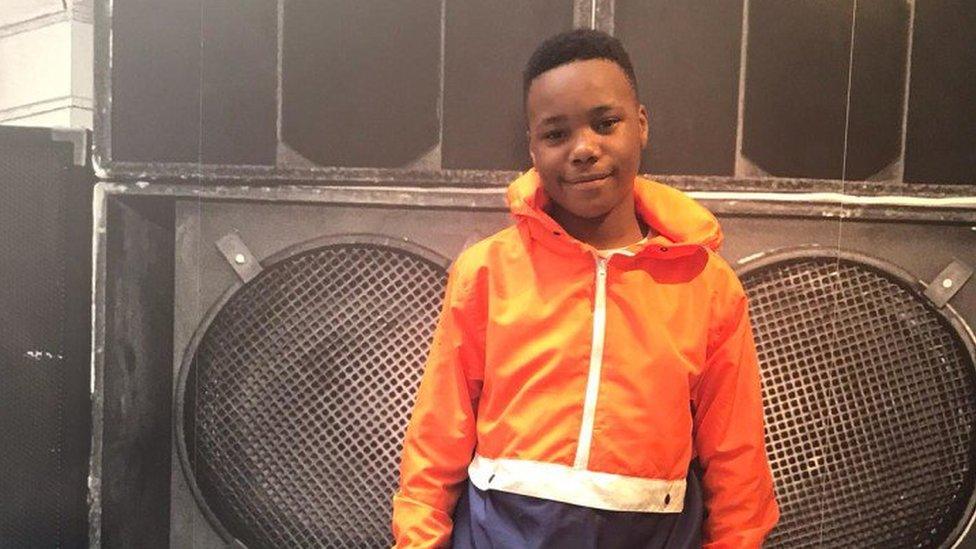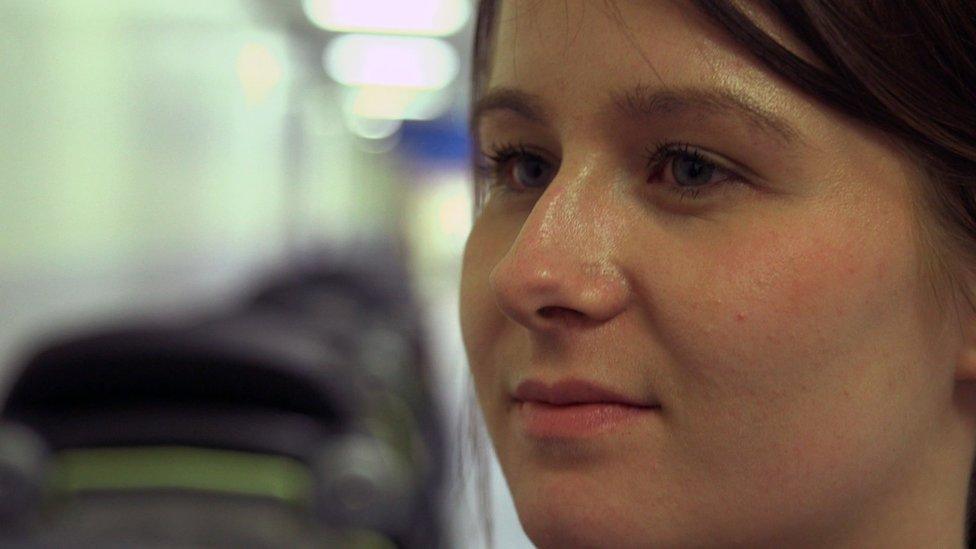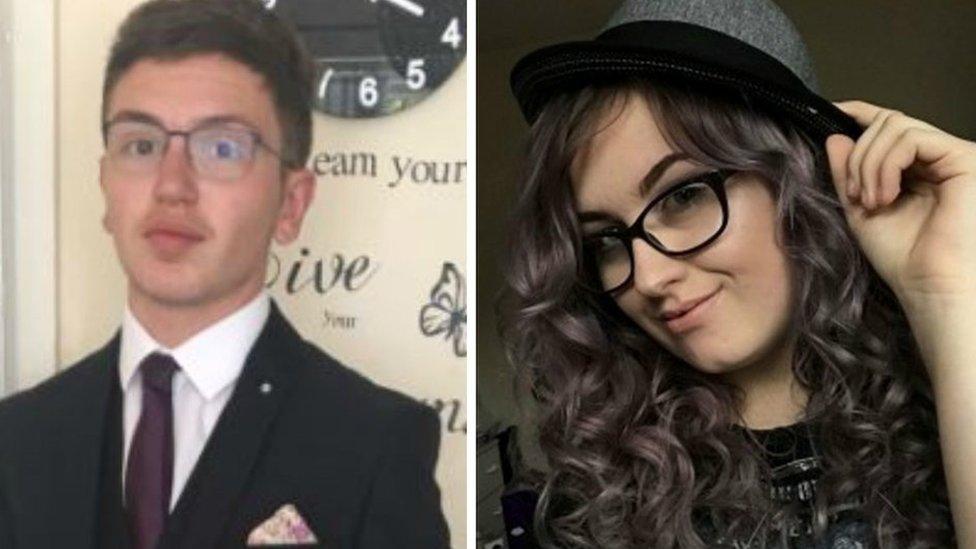Knife crime: Ex-minister wants it treated with urgency of terrorism
- Published

Yousef Makki and Jodie Chesney, both 17, were killed in separate knife attacks two days apart
The government should treat knife crime with the same urgency as terrorism, a former Home Office minister has said.
Labour MP Vernon Coaker said Cobra, the government's emergency committee, should meet to respond to the "national crisis".
It comes after two 17-year-olds were killed in separate incidents in London and Greater Manchester at the weekend.
Home Secretary Sajid Javid said he would meet police chiefs to look at ways to combat violence.
'Families wrecked'
Mr Coaker, the MP for Gedling, in Nottingham, told the BBC's Victoria Derbyshire programme he had been motivated to act after his constituent Jaden Moodie, 14, had been stabbed to death in January.
"We're seeing the murder of young people on our streets - families wrecked, communities almost under attack," he said.

Jaden Moodie was knocked off a moped before being attacked
"If a terrorist incident occurs, of course we should deal with that really seriously - but this is also something which is a national crisis and a national emergency."
Cobra meetings, typically called following threats to national security, aim to bring together senior ministers, civil servants, emergency services, councils and others to produce a fast, effective response.
"In the face of many other national emergencies, the government quite rightly bring everybody together at Cobra. That's what they should be doing in respect to knife crime," said Mr Coaker.
Figures show the number of children in England aged 16 and under being stabbed rose by 93% between 2016 and 2018.
Former Conservative policing minister Mike Penning said he agreed with Mr Coaker about the urgency needed to tackle the problem.
He said the government's counter-terrorism strategy, known as Prevent, could act as a blueprint, "where people go into communities and educate young people about the dangers of knives".
The unit tackling knives and other weapons in Nottingham
Mr Penning also called for additional police powers to use stop and search.
The existing powers enable officers to search people on the street if they have reasonable grounds to suspect they may be carrying weapons, illegal drugs, stolen property or items to be used to commit a crime. People can also be searched without reasonable grounds if a senior officer believes there's a risk of serious violence in a particular area.
Daily victims
Nottinghamshire Police is the only force outside London with a dedicated team tasked with taking weapons off the streets.
Between October 2017 and September 2018, six people were killed in knife attacks in the city - with 889 knife incidents recorded in 2018, a 12% rise on the previous year.
Also in 2018, the East Midlands Major Trauma Centre said it had resuscitated 28 children with knife wounds, 50% more than in the previous year.

Janice Morgan said on one night there were six stabbings
"The youngest patient I've treated is probably 14 but I know there has certainly been some younger than that," said nurse Janice Morgan.
She added that on one night there had been six stabbings.
A Home Office spokesman said it recognised the severity of the problem and had launched the Serious Violence Strategy and invested £220m in early intervention projects.
He said: "In recognition of the severity of the threat we also created the Serious Violence Taskforce, which is chaired by the home secretary and brings together ministers, MPs, the mayor of London, senior police officers - including the Met commissioner - and leaders from the public and voluntary sector.
"The taskforce meets regularly to ensure the strategy's objectives around early intervention and law enforcement are being delivered."

Follow the BBC's Victoria Derbyshire programme on Facebook, external and Twitter, external - and see more of our stories here.
- Published4 March 2019
